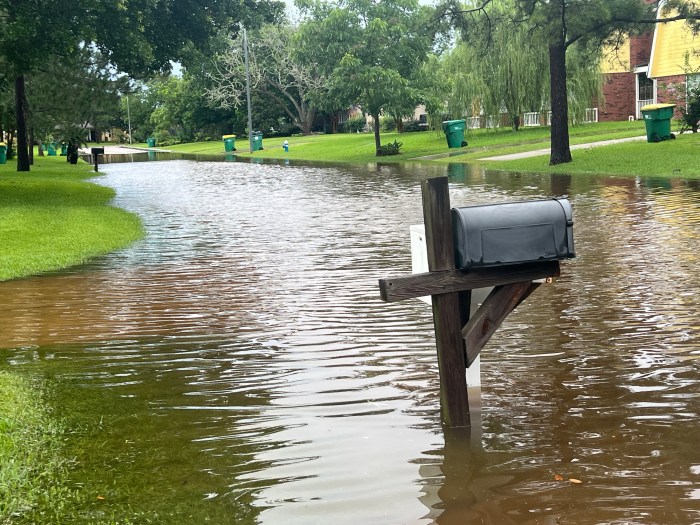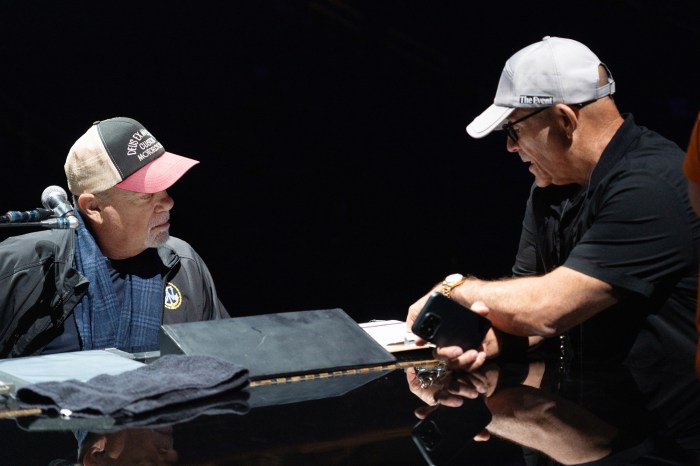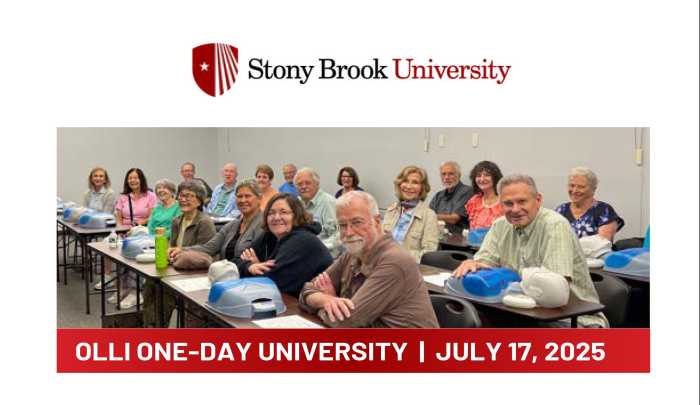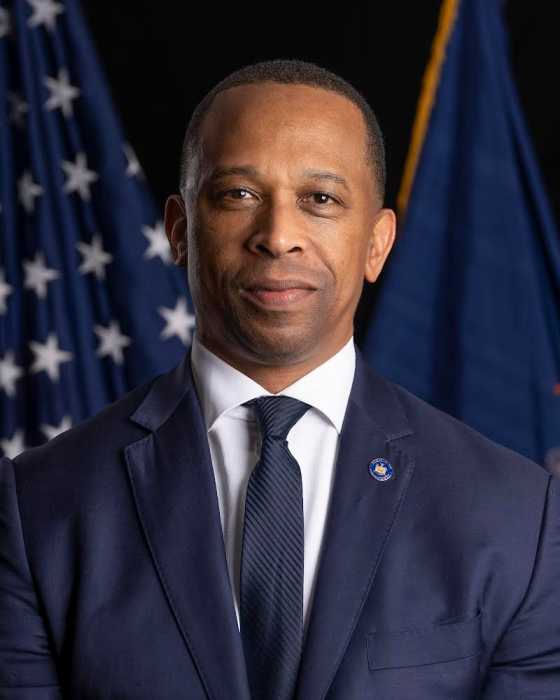At the beginning of the last Williston Park Village Board meeting, mayor Paul Ehrbar called for a moment of silence to honor the recently deceased Joe Camisa, who for 16 years, had been the head of the Williston Park Auxiliary Police.
He then introduced Jean Franchine, who will now be heading up the Williston Park Auxiliary Police.
Franchine said, “I’m looking forward to this new position because I know that behind me I have a very supportive village board.”
Before hearing the local law, Mayor Ehrbar announced that Donna McKenna, who was in the audience and who is the Williston Park Library director, is expecting twins in June and, naturally, everyone in the audience was very happy for her and they gave her a big round of applause.
Local Law to Over-Ride the Tax Cap
The first order of business was to hold a public hearing in an effort to override the 2 percent tax cap. Village attorney James Bradley explained that the law states, “The total amount of the taxes that can be levied by the municipality cannot be more than 2 percent of the previous fiscal year. As part of the law, the legislature gave the local municipalities the option to override, for the upcoming fiscal year that 2 percent levy. What I mean by only for this fiscal year is that if the board should decide to adopt the local law for tonight, it is only applicable for the budget that will be adopted in April of this year. It is not something that will continue indefinitely in future years. The law would have to be passed, in future years, for the override.”
Bradley continued, “Now, why is the override a good idea? Why is it being adopted by most municipalities? The rules to implement this 2 percent cap are still being worked out by the state. There are extensive programs that Williston Park Village Clerk Julie Kain, can attest to, that treasurers have to attend to determine what goes into this program in calculating the 2 percent levy. And, that 2 percent is not even a hard number because that can be adjusted downwards depending on the inflation.
“There are no provisions in the state law for innocent mistakes. If a municipality should make an error in calculating whether they have fallen within the 2 percent limit or have exceeded it, if they are wrong, and it is above the 2 percent, then there is a penalty imposed on the municipality. But, my reading of that is that you are just reducing your tax base for the coming year.
“The reason I have recommended this to the village board is because of the uncertainty of the regulations of what goes into these calculations and the risk that I think it imposes for the municipality if an innocent mistake is made in the calculations. The law, if passed, does not obligate the village to go above the 2 percent. That is still a matter to be determined on the adoption of the budget. It is a safety value to protect against errors and mistakes that may be made.
“In addition, and I am not aware of such a situation coming up, but if there should be some reason that the municipality needs to acquire expenditures, which are not covered by grants but something that would clearly be paid for out of the municipal taxes and if for some reason an emergency comes up that requires that expenditure, at least the law is in effect at that point and the village board can then pass a budget that goes above the 2 percent tax cap.
“As you know, the budget process is public and a tentative budget will be circulated and people can ask questions and the board will be accountable for whatever budget is passed.
“This law does not affect that responsibility, nor does it obligate the village board to pass a budget exceeding the 2 percent; it is just a protection if an error is made.”
Bradley went on, “To show you how complicated this can be, one state report said that of the municipalities that have this in effect because their fiscal year is on a calendar year basis, which is generally towns, 30 percent made an error in their calculations and went above the 2 percent. To me, that is a big risk and I don’t think this village should take.”
He turned the meeting back to mayor Ehrbar who said, “I have been to three seminars on this issue. Clerk Kain has been to two or three and the rest of the board have been to seminars as well. So, I have heard a lot of what Jim is saying and NYCOM, which is the New York State Conference of Mayors, also recommended that villages pass this law for safety net purposes. Jim is saying 30 percent, but we went to a meeting with the Nassau County of Mayors and they quoted a 66 percent error rate.”
Ehrbar continued, “New York State Comptroller Thomas DiNapoli said 177 have exercised the option to pass the resolution to exceed. Another thing I learned is that this could affect our bond rating. The bond services base your rating on your ability and your willingness to raise taxes. If you don’t have the ability, the potential is there to lower your rating which in the long-term, if you need to borrow money for capital projects, you will pay a higher interest rate.
“I don’t know how this will play out and it’s probably too early in the game to figure out how the rating companies will handle this. We have met with the state comptroller’s office and there still is a lot of confusion. The bottom line is that if you make a mistake now and it’s uncovered two or three years down the road, I’m talking about an innocent mistake, then you are penalized for it. Going with an override, does not mean you will go higher than 2 percent. My belief is that as we go through various preliminary stages of the budget we can come under the 2 percent cap and that’s what we are going to shoot for and we will go as low under the 2 percent cap as possible. Further, I think we would be shortsighted if we don’t take this opportunity to protect ourselves from being penalized. It is not us being penalized, it will be you the taxpayers.”
Trustee Teresa Thomann said, “I have a different take on this. I think at this point in time this law is too premature. I feel we haven’t begun to adopt a budget and we are drawing a line in the sand and we are targeting 2 percent and I don’t feel that it is necessary to do this at this time. We can first start preparing the budget and we can see if there are creative ways we can manage our expenses and at that point in time we can deal with this issue that allows us an option of overriding the 2 percent tax. As a matter of fact, in last week’s coverage of NYCOM and coverage of the NCVO, vice-president Barbara VanEpp, who is a specialist in this area, specifically said that the tax override can be done on the same night that the budget is being made because by law the override law takes effect immediately after being approved. In addition to which, the comptroller’s office reported that most municipalities who made errors, once corrected, were still under the cap. I don’t feel the sense of urgency and I do agree we have to be careful, I think it is just the wrong tone to set.”
Trustee Kevin Rynne said, “After going to the meeting, vice-president VanEpp did say that it is necessary to do this right now; there are villages that adopted this local law four months ago. We are in the preliminary stages of our budget. I ran two years ago saying that I am not in favor of raising taxes and I think that everyone on this board is going to try their best to be as ‘tight’ as we can in these economic times and still provide the services to the residents that they deserve.”
Ehrbar said, “I feel comfortable that we can do what we need to do to get this 2 percent cap this year, but I do feel we need that safety value. I have a problem by the 2 percent tax cap being imposed by the state. We can do it this year and we can do it next year, we have major projects that need to be considered. I think it is putting major pressure on the village especially where state aid is not coming through and where mandates are coming through that are costing the taxpayers so much money. But, I feel comfortable that we can do less than 2 percent, but to put the safety net in place is not a problem.”
He then opened the meeting to the public. The first speaker was Marvin Goodman, who said, “I believe you are setting a precedent for this village to pass a blanket resolution without knowing what numbers will be applicable to this particular law that you wish to pass.
“For example, when you are doing your budget you could put any number you want into your budget for this 2 percent instead of identifying those numbers for this particular year. I would prefer that you wait until you do your budget, find out what you need and then come in with those particular items for this particular year.”
Another resident said, “I have to agree with trustee Thomann and with Mr. Goodman. This sounds like the Obama health care. Let’s pass it and we’ll read it later. You come up with some villages passed it, but you didn’t say some villages didn’t pass it and we should be one of those who does not pass this, or let us see the papers first. Do not go through the backdoor.”
Reassessment in Village
A resident commented that her assessment went up. But, mayor Ehrbar said that this is not an assessment issue.
Mayor Ehrbar said, “I don’t like paying taxes but everyone on this board must look to see what money it will take to keep this village going. We do not want to raise taxes, but, to me, putting a 2 percent tax cap in place now, is not a major issue. A couple of town’s voted it down. Most villages are not having an issue. You have to have some faith and trust in those who are sitting up here (the board) that we are telling you honestly that we don’t anticipate going over 2 percent but if a calculation goes through stating we are wrong and it’s not discovered for four years, we will penalized for those four years.
“So, we are looking to protect the village, not to hurt the village and I believe do the right thing for the village.”
Resident Gayson said, “You have to be very leery of the state because you don’t know what the penalties will be and whatever it is, they win.”
Since there were so many questions regarding the budget process, mayor Ehrbar said, “Anybody who wants to observe the budget process is welcome to come and sit in on our meetings as we go through the budget process. Last year we had a few residents that came to just about every meeting. This year the addition to this process will move along going up and down with the 2 percent. But come and listen and observe.”
The very long discussion ended with a vote to adopt Local Law No. 1-2012 and to override the tax cap.
Tax Grievance Days
The following days have been designated by the village as Tax Grievance Days; Feb. 16 and Feb. 21 from 6:30 to 9:30 p.m. It is requested that anyone who would like to “grieve” their taxes to please make an appointment.
Village Election
The Village Election will be held this year on March 15 and there will be two trustee spots open.
Next Meeting
The extremely long and involved meeting finally ended. The next Williston Park Village Board meeting will again be held on a Tuesday, due to a Monday holiday. The meeting will be on February 21, at 8 p.m. at Williston Park Village Hall, 494 Willis Avenue, Williston Park.

































